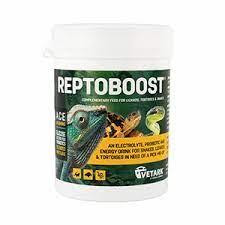Our pets hold a special place in our hearts, and their health and well-being are paramount. Just like us, they can face digestive issues that can lead to discomfort and health concerns. To address these concerns, a wide range of pet digestive supplements has emerged, offering solutions to support their digestive health. In this article, we'll explore the importance of pet digestive health, common digestive issues in pets, and the various supplements available to keep your furry friend feeling their best.
The Significance of Pet Digestive Health
A healthy digestive system is crucial for your pet's overall well-being. It ensures the proper absorption of nutrients, supports a strong immune system, and contributes to a happy and active life. When the digestive system is compromised, pets can experience a range of issues, including:
Upset Stomach: Frequent vomiting or diarrhea can be signs of an upset stomach, which can result from dietary indiscretions, food allergies, or infections.
Constipation: Difficulty in passing stool can lead to constipation, causing discomfort and potential complications.
Gastrointestinal Disorders: Conditions such as gastritis, pancreatitis, or inflammatory bowel disease can affect your pet's digestive tract, leading to chronic issues.
Food Allergies and Sensitivities: Pets can develop allergies or sensitivities to certain ingredients in their food, resulting in digestive problems.
Microbial Imbalance: An imbalance in the gut microbiota can disrupt digestion and lead to issues such as bloating, gas, and diarrhea.
Common Pet Digestive Supplements
To address these digestive issues and promote a healthy gut, a variety of pet digestive supplements are available. These supplements aim to provide essential nutrients, enzymes, probiotics, and other compounds to support digestive health. Here are some common types of pet digestive supplements:
Probiotics: Probiotics are beneficial bacteria that help maintain a balanced gut microbiome. They can improve digestion, reduce diarrhea, and enhance the immune system. Probiotic supplements for pets come in various forms, including capsules, powders, and treats.
Digestive Enzymes: Digestive enzymes help break down food and improve nutrient absorption. They can be especially beneficial for pets with exocrine pancreatic insufficiency or other enzyme deficiencies.
Fiber Supplements: Fiber supplements can aid in regulating bowel movements and preventing constipation or diarrhea. They are often recommended for pets with gastrointestinal issues.
Prebiotics: Prebiotics are non-digestible fibers that feed beneficial gut bacteria. They work in tandem with probiotics to support a healthy gut microbiome.
Gastric Acid Reducers: Some pets may suffer from excessive stomach acid production, leading to gastritis or acid reflux. Gastric acid reducers can help alleviate these issues.
Anti-Inflammatory Supplements: Inflammation can contribute to digestive problems. Anti-inflammatory supplements, such as omega-3 fatty acids, can help reduce inflammation in the digestive tract.
Food Additives: Some specialized pet foods contain digestive supplements, such as hydrolyzed proteins or novel ingredients, to address food allergies and sensitivities.
Choosing the Right Pet Digestive Supplement
Selecting the appropriate digestive supplement for your pet depends on their specific needs and the advice of your veterinarian. Here are some considerations to keep in mind:
Consult Your Veterinarian: Before introducing any new supplement to your pet's diet, consult your veterinarian. They can provide guidance on the most suitable supplement and dosage for your pet's unique situation.
Quality Matters: Choose supplements from reputable brands that adhere to high-quality standards. Look for products with clear ingredient lists and no unnecessary additives.
Formulation and Dosage: Consider the form of the supplement (capsules, powders, chews, etc.) and whether it's convenient for your pet. Follow the recommended dosage instructions closely.
Understand Your Pet's Needs: Different pets may require different supplements based on their age, size, breed, and existing health conditions. Tailor the choice of supplement to your pet's specific needs.
Monitor for Improvement: Keep an eye on your pet's digestive health after starting a supplement. Note any improvements or changes and share this information with your veterinarian during follow-up visits.
Be Patient: It may take some time for a supplement to show its full effects. Be patient and continue administering it as directed.
For More Info:-
Best ear cleaning solution for dogs
buy pet dental treats online at affordable prices






Comments